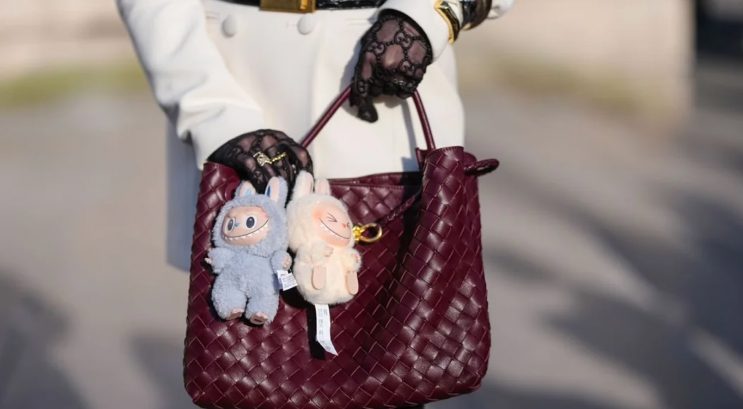
My friend bought something new today. She is excited to show me. Covered in fur, peering at me with big, bright eyes, a strange doll sits in her hands. “A Labubu!” she tells me. I don’t really know what to say.
What the fuck is a Labubu?
Originally introduced to the world in 2015, Labubu hasn’t had a cult-like following until this year. The fluffy troll doll was created by the Hong Kong artist Kasing Lung, and is originally from his Nordic mythology-inspired series, “The Monsters”. Since then, it has been seen on the Chanel purses of various celebrities, and now, on the backpacks of your closest friends. But what is the appeal of these strange, fuzzy creatures? Why is everyone desperate to own these ugly (in my opinion) dolls?
Never underestimate the importance of good marketing. Whether it’s Coca-Cola turning Santa’s coat red, or the fact we all call plasters “Band-Aids”, marketing can make or break a brand. Labubu is no different, with the marketing carefully curated to elicit consumers’ scarcity mindset and cause impulsive purchases. How? To purchase a doll, customers must line up on apps to join the ticket-hungry masses, which, when combined with limited edition special items and the fact every doll comes in a blind box, feeds a fear of missing out by creating artificial scarcity.
Moreover, Labubus are a form of social currency: everyone must have this new, trendy object to fit in. We don’t want to miss out, fall behind, or be rejected by the group. It is classic herd mentality: if the group says we want monster dolls, we want monster dolls. Humans don’t want to be socially excluded or ostracised, and that is playing out in a new, stranger way. But really, how different is it to the rise of Uggs, or using overpriced Stanley cups? Perhaps the distinction is that other trending products seem to have a discernible function outside of status signalling, whereas Labubus do not. Despite this, it still functions the same. It is easier for us to assimilate with the herd than to question why we want it. After all, with the global economy in decline, increasing unemployment rates, whispers of war, and the rise of AI, who wants to stop and think? The alternative, plugging into brain-rotting social media and allowing ourselves to be told what to buy, how to feel, and what we like, provides an easy, much-needed dopamine rush. Overconsumption is a problem, but it is also a symptom of a much larger, more complex issue.
Labubu’s rise reminds me of the Lipstick Effect, which refers to an economic concept that suggests that during times of economic hardship, consumers often purchase small luxuries (like lipstick) rather than larger, investment items. For example, during the Great Depression, young women reduced spending in several other categories, but increased spending on cosmetics. Purchasing lipstick or Labubus makes little difference: it provides us with temporary dopamine in a quick, easy hit and distracts us from a brutal reality. The Lipstick Effect seems to be driven by a desire to treat ourselves, but choosing to do it more frugally, given the current economic context.
One distinction with the Labubu phenomenon, however, is that it borders on overconsumption as a result of late-stage capitalism. These toys are degradable; they will rot and perish, and, as such, only function to financially take from you. It is no longer a functional item that we treat ourselves to, but rather a status symbol that buys us social acceptance.
The point of this piece is ultimately to remind us all that we have a choice – we don’t need to buy things that don’t serve us! Labubus and lipstick may be a shiny distraction from uncomfortable feelings in this uncertain political and economic landscape, but they ultimately don’t benefit us. Before you make your next purchase, sit with it for a while, do your research, think about your wants and needs – is it necessary for the improvement of your quality of life? Your wellness? If so, then, and only then, should you put your hard-earned money into companies’ pockets.
Written by Sophia Crossing
Views: 531
